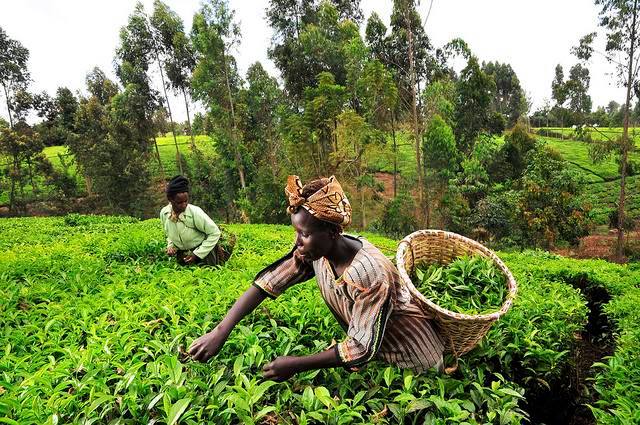Less than 1% of farmers insured
Farmers are still shying away from taking insurance covers for their businesses in spite of suffering various losses from weather-related risks and human endeavours on yearly bases.
Less than 29,000 farmers have insured their farms against uncertainties over the past decade, according to data from the Ghana Agricultural Insurance Pool (GAIP).
The insurance covered a little over 200,100 acres of farmland across the country and had accumulated premiums in excess of GH¢3.5 million to insurers between 2011 and last year, the data showed.
Experts say the number of farmers and farmlands insured was a drop in the ocean, given the swelling nature of farmlands and farmers in the country. They point to affordability and poor appreciation of the benefits of insurance as the twin factors holding back patronage of the service in the country.
About 65 per cent of the country’s workforce, equivalent to more than five million Ghanaians, are said to be engaged in agriculture on a land area of about 147,800 square kilometres.
Implications
The low patronage of insurance by farmers and other agricultural sector enterprises has increased the risk profile of the business, making peasant farming, in particular, an afterthought for financial institutions when it comes to funding.
The General Manager of the GAIP, Alhaji Ali Muhammad Katu, told the Graphic Business on September 8 that it was heartbreaking that less than 29,000 farmers were insured in a country where almost three-quarters of the labour force were into agriculture.
He said the development contributed significantly in making agriculture the most starved sector when it came to credit allocations by financial institutions.
“For farmers, insuring the business is not only a source of comfort but it acts as a risk-mitigating tool. When banks know that the business is insured, they feel comfortable dealing with the farmer and that can address the low funding challenge that farmers face,” he said.
Losses
The revelation on the low insurance penetration in the agricultural sector comes at a time when farmers in the savanna zone are battling with losses arising from floods and excess rainfall.
The floods have inundated hundreds of acres of farmland in the zone while cutting others off from their owners.
An annual occurrence, excess rainfall and floods often combine with the perennial spillage of the Bagre Dam in Burkina Faso, occasional fires and drought to destroy various sizes of farmland nationwide and the savanna zone, in particular, leading to appeals for support by various farmer groups.
The General Secretary of the General Agricultural Workers Union (GAWU) Mr Edward Kareweh, said in a separate interview that the lack of insurance had forced farmers to often rely on their property to make up for those losses.
He said experience had shown that most affected farmers often sold other assets such as animals, vehicles and houses to pay off loans taken to fund affected farms.
Alhaji Katu of the GAIP said that traditional strategy impoverished the farmer but could be avoided when patronage of agricultural insurance increased.
“Farmers need to take up insurance and move away from this traditional mechanism of selling their properties to pay whenever there is a disaster. It makes them poorer and poorer,” he said.
Agric farm
Generally, patronage of insurance has been low in sub-Saharan Africa and Ghana in particular.
The National Insurance Commission and the Bank of Ghana say insurance penetration was below two per cent of gross domestic product, way below the African average.
Alhaji Kati and Mr Kareweh said the same scenario was playing out in the agricultural sector, where affordability and limited knowledge about the dynamics of insurance were pronounced.
The GM of the GAIP said the low coverage was in spite of aggressive campaigns by the pool and other stakeholders to get farmers to insure their farmlands.
He said an index-based system of insuring farmers en bloc had also helped to improve coverage although much still needed to be done.
He said his outfit was hopeful that the establishment of an agricultural insurance fund to pool resources to subsidise premiums would help increase coverage.
A creation of the Insurance Act, 2021 (Act 1061), the fund is envisaged to be funded by the state, levies and development partners.
“Generally, it is not easy to get farmers to buy insurance. When you explain, they understand and want to patronise but majority are limited by capacity.
“When the fund starts operation, it can take up part of the cost to help make it affordable,” he said, noting that it was only Ghana that agricultural insurance was still not subsidised.



